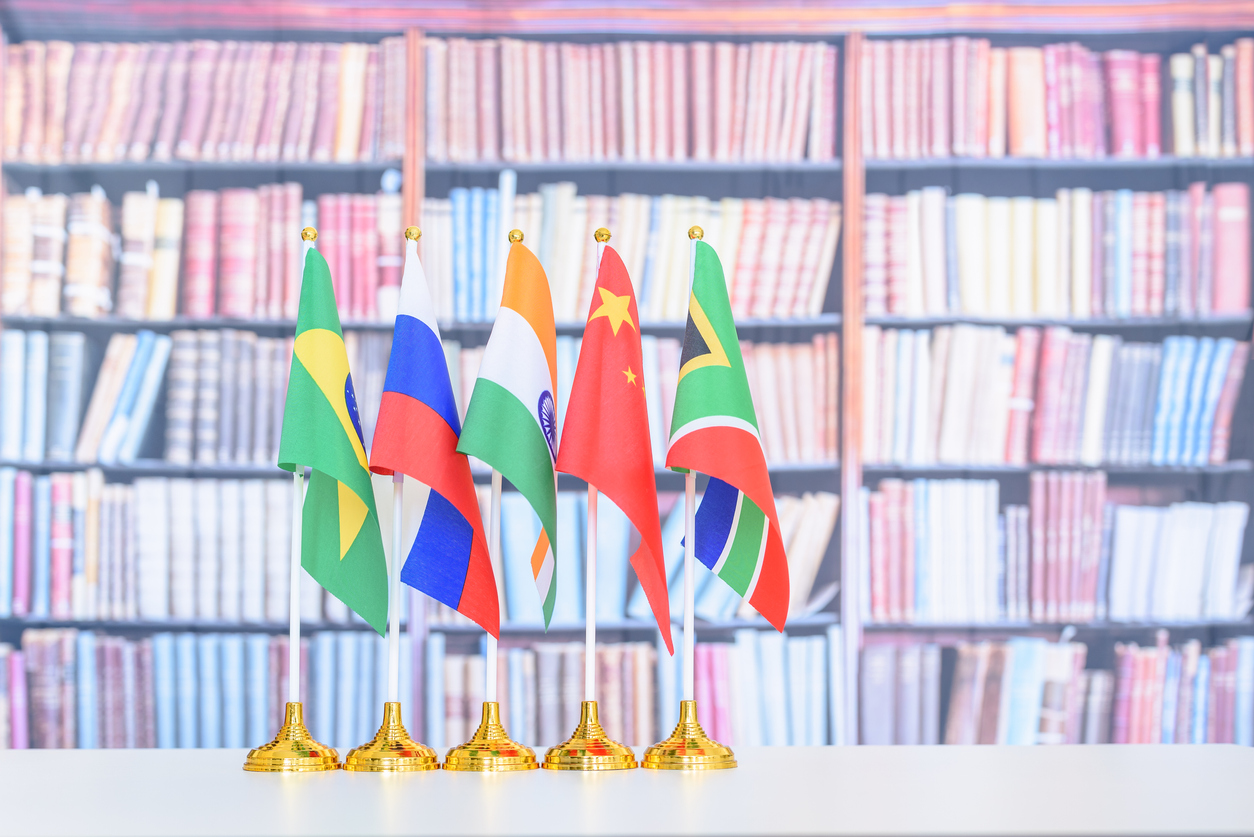The greater the authority the government has over the economic decision making process, the lesser the economic returns will be.
This week, the so-called BRICS bloc of nations held its annual summit in Johannesburg. In case you aren’t familiar with the acronym, it stands for Brazil, Russia, India, China and South Africa (BRICS). Also, don’t feel as though you are alone if you missed the news. The story didn’t get a lot of ink in the United States.
And why should or would it? The concept behind the BRICS bloc is to be sort of a counterbalance to the US-dominated, western world economic order, but it really isn’t in practice.
With football just around the corner, let me use the following analogy to sum up American interest.
Imagine Hugh Freeze, Jimbo Fisher, Kirby Smart and Brian Kelly go out to lunch. Does Nick Saban care?
Even so, there is something about that grouping of countries which doesn’t seem right to me. Sure, I get China and Russia being in cahoots with one another to throttle Uncle Sam. In fact, I expect it out of those two. But India and Brazil? What have we done to them? And why is South Africa lumped in with the rest of the lot?
Yeah, that last one is a bit of a head scratcher from the outside. However, one would assume China asked the South Africans to join in order to get a foothold, of some sorts, on the African continent. This, then, could help expand Beijing’s influence throughout mineral-rich, property rights of poor sub-Saharan Africa. Still, it is clearly the odd man/country out in the list.
After all, depending on the measure, China is either the world’s largest or second largest economy. India is third, Russia is sixth and Brazil is 8th. South Africa? Using the most recent GDP PPP from the World Bank, it is all the way down in 33rd place; roughly one-quarter that of Brazil’s. Further, its population is also significantly smaller than the other three, about 90 million less than Russia.
This has a point other than to wonder at South Africa’s inclusion. Although I still sort of do.
Countering the G7
If one wanted to concoct a bloc of nations to effectively counter the G7’s global economic hegemony, it would have to include other countries besides just the BRICS. It also probably wouldn’t include South Africa.
The following table makes sense to me if the definition of success is changing the existing rules and global leadership. Table data here and here.
| Country | Region | GDP PPP ($Billions) | Population (million) |
| Mexico | North & Central America | 2,743 | 128.4 |
| Brazil | South America | 3,837 | 216.4 |
| Russia | Europe | 5,327 | 144.4 |
| Turkiye | Europe & Middle East | 3,181 | 85.8 |
| Saudi Arabia | Middle East | 2,151 | 36.9 |
| Egypt | North Africa | 1,675 | 112.7 |
| Nigeria | Sub-Saharan Africa | 1,281 | 223.8 |
| India | South Asia | 11,875 | 1,428.6 |
| China | East Asia | 30,327 | 1,425.6 |
| Thailand | Southeast Asia | 1,482 | 71.8 |
| Vietnam | Southeast Asia | 1,321 | 98.8 |
| Indonesia | Oceania | 4,037 | 277.5 |
| TOTAL | 69,237 | 4,250.7 |
Of course, you could argue I left out some potential players like Pakistan, Bangladesh, Malaysia, Argentina, and the Philippines. The reason is little more than I wanted to keep the number at 12, and someone had to cut the axe. Further, I would submit non-G7 countries like South Korea, Taiwan, Spain, Australia, Israel, and the Netherlands are pretty well-ingrained in the current status quo.
But look at those numbers! That proposed bloc would have the following:
- A total GDP of about $69.24 trillion
- A combined population of around 4.25 billion
- Further, it would represent major emerging economies in just about every major region of the world.
- For grins, it would represent about 42.2% of total global economic output
- And about 53% of the planet’s human population.
- If that isn’t enough, consider the bloc would have active military strength of 7,878,900, with many millions more in reserve
By comparison, the G7 – heretofore the world’s economic rule makers and hegemons – have a combined GDP of roughly $49.23 trillion, total population of close to 776.73 million, and standing military strength of 2,396,753.
So, do you think such a group of countries, this emerging 12, working together, would/ could/ or should have a meaningful seat at the proverbial table? Well, whether you think they should or not, moving forward they very probably will.
The question is how they will do it. After all, this a disparate group of countries which represent a number of different underlying nationalities, faiths, languages, cultures and even cuisines. Shoot, there are languages in India and China alone with more than 50 million speakers with which most Americans are not familiar.
So, what could they possibly have in common in order to oppose the U.S.-centric world order?
Let me answer by asking a question. Do any of you remember sitting at the kids’ table on Thanksgiving or other family feast day? From your folding chair at the card table, did you ever look over at the adults and want desperately to be part of that group? That you weren’t a kid any longer, and your younger relatives were spazzes?
While overly simplistic, there is probably more to that paragraph than you might imagine. Why? Well, is there really, really an alternative to the U.S. dollar, and to a lesser extent the euro, to facilitate global trade? Another currency with the necessary size, convertibility and liquidity? The answer is no. Further, strong individual property rights have consistently been shown to engender ingenuity and wealth creation. Is that such a bad thing?
With that said, such a diverse group of emerging countries having a greater say in global affairs, would likely reduce the non-economic noise which often comes out of G7 meetings and even G20 meetings (of which many of the 12 are members). That link will take you whitehouse.gov for a full transcript of the communique from the most recent summit in Hiroshima. If it reads like it was written by policy wonks and bureaucrats, and certainly not the leaders of the countries themselves, you might just be onto something.
So, should we, as Americans, fear such a bloc of countries? Those which want, and arguably deserve, a proverbial seat at the table? What would they upset? What would they try to impose on us? How would it impact the American way of life?
The truth is this: competition is almost always a good thing when it comes to economic growth.
The United States can beat back pretty much anything it has a will to do so. With that being said, if we want to continue to dominate the global economy, let’s get after it and untether American businesses to do just that. If we want a return of manufacturing jobs, what regulations are we willing to cut to help make it so? The list is endless.
However, one thing is certain: the greater the authority the government has over the economic decision making process, either directly or indirectly, the lesser the economic returns will be.
That isn’t an opinion as much as a decent understanding of economic history. So, be sure to read up on it before they change it.
In the end, the choice is ours, that is how much potential and how far of a lead this country has. It really doesn’t matter what noise comes out of a BRICS summit, all the more so when you realize the bloc itself is mostly, dare I say, for show. That is why most Americans missed it this week, and why nothing will come of the summit itself.
To that end, and along those same lines, Nick Saban doesn’t care if Jimbo Fisher prefers white or wheat bread on his club sandwich.

John Norris
Chief Economist
Thank you for your continued support. As always, I hope this newsletter finds you and your family well. May your blessings outweigh your sorrows on this any every day. Also, please be sure to tune into our podcast, Trading Perspectives, which is available on every platform.



